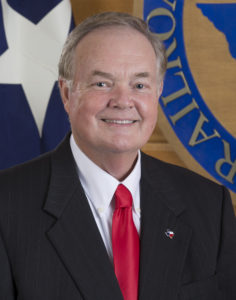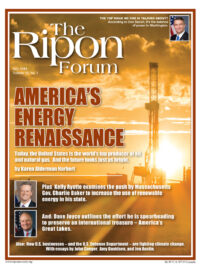
In my experience, many people misunderstand the overall impact of the oil and gas industry on our modern world. Many view oil and gas as an antiquated energy source — a relic of the past that will soon be replaced with so-called “green” alternatives. However, when looking at our ever-growing need for energy, it quickly becomes very clear that fossil fuels are going to remain our primary source of energy for the foreseeable future. In my opinion, that is not a bad thing.
Few discoveries have impacted the world around us more than oil, natural gas and coal. The story of energy before fossil fuels is a simple one — most work was done by human or animal muscle. This caused most of the world’s population to live short lives of hard labor in extreme poverty. The global average life expectancy in 1800 was only 25 years, with 30 percent of children dying before age 15. During the 19th century, 80 to 90 percent of the U.S. population did back-breaking work on farms and spent a whopping 74 percent of family income on food, clothing and shelter.
Because of oil and gas, our lives are no longer defined by extreme hunger, cold or hardship.
Around 1800, things began to change. Many people began to live easier, longer, healthier and wealthier lives. Incomes rose sharply and steadily, following the industrial revolution. With that increase in income, life expectancy greatly improved. Today, the average person lives more than three times longer than the average person in 1800. This is partly because climate-related deaths, such as starvation and hypothermia, have decreased 98 percent in the U.S since the use of oil and gas became widespread at the beginning of the 20th Century. Because of oil and gas, our lives are no longer defined by extreme hunger, cold or hardship.
It’s easy to forget these things given the way the mainstream media reports climate change. By bombarding us with sensationalist predictions of death and destruction, they make it seem like using oil and gas to drive our cars and heat our homes is bad. In the pages of New York Magazine, one prominent climate alarmist wrote that climate change will make Earth uninhabitable due to “famine, economic collapse, and a sun that cooks us.”
The activist media then claim that climate change is “settled science” and that 97 percent of scientists agree that the main reason for global warming is man-made greenhouse gases. But that’s not true either; real science is never “settled” and 97 percent of scientists don’t agree. Using the same academic papers used to reach the 97 percent number, an economist found that only 1.6 percent of scientists explicitly stated that man-made greenhouse gases are the main cause of climate change.
In fact, the science of climate change is far from settled. The United Nations climate models are constantly being “updated” or modified, and wildly irresponsible climate predictions — like the starvation of 4 billion people during the 1980s — have not happened. That doesn’t sound like settled science to me.
It is arrogant for individuals on either side of an academic debate to only consider one side of an argument.
Like everything else in life, there are advantages and disadvantages to using fossil fuels. I argue that the advantages of having cheap, plentiful and reliable energy vastly outweigh the disadvantages. Additionally, we have regulatory bodies, such as the Railroad Commission of Texas, to oversee the production and transportation of fossil fuels, mitigating the disadvantages and punishing bad actors who harm our environment.
It is arrogant for individuals on either side of an academic debate to only consider one side of an argument. The politicization of climate “science” and related attempts by academia and the mainstream media to shame “climate deniers” is both wrong and dangerous for our democracy.
We need to set politics aside and have the courage to admit what we know and, more importantly, what we don’t know — and we don’t know whether man-made greenhouse gases are impacting our climate in a harmful way. What we do know is that more than one billion human beings don’t have access to enough electricity, and as a result, have shorter, more difficult lives. It is time for us as a civilization to put mankind first and work to ensure that energy is cheap, plentiful and reliable for everyone.
Wayne Christian is a Texas Railroad Commissioner and former member of the Texas House of Representatives.




